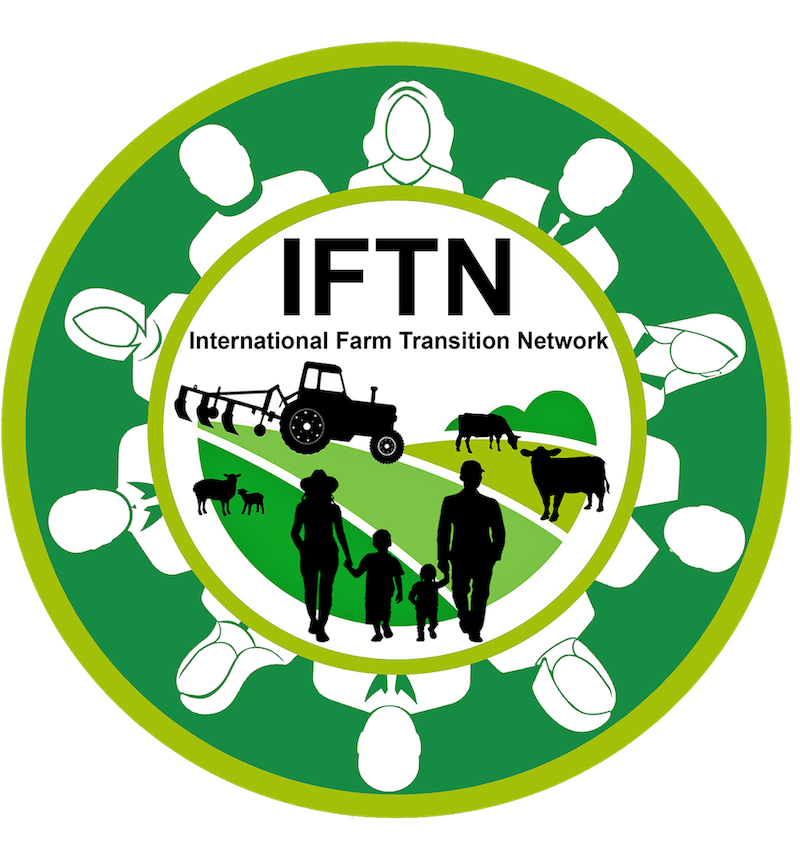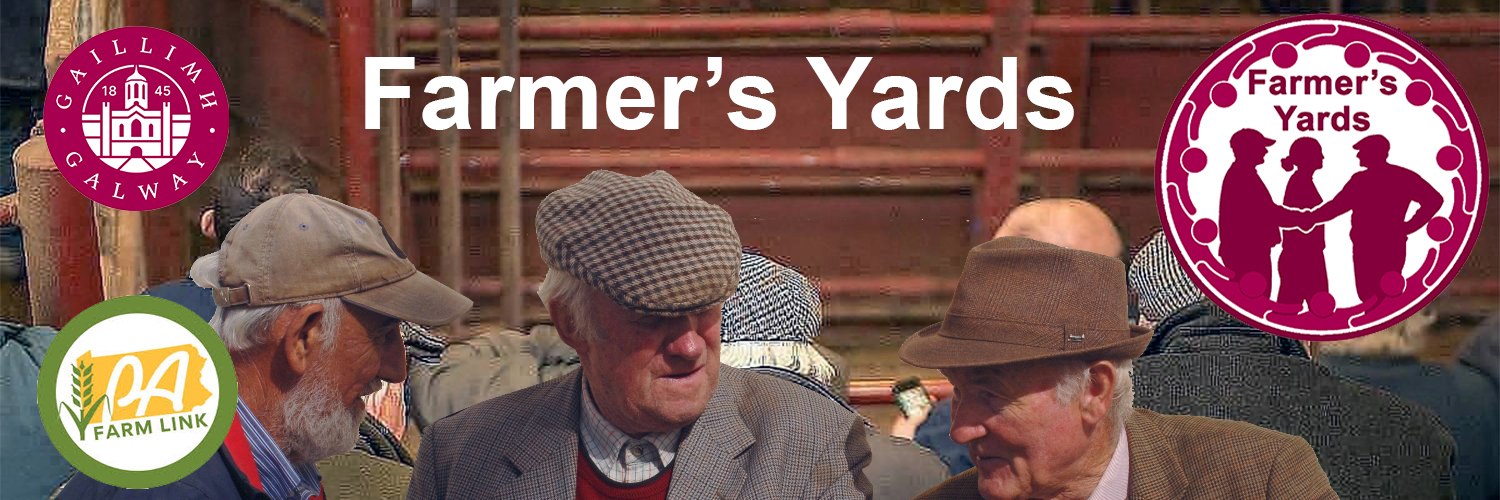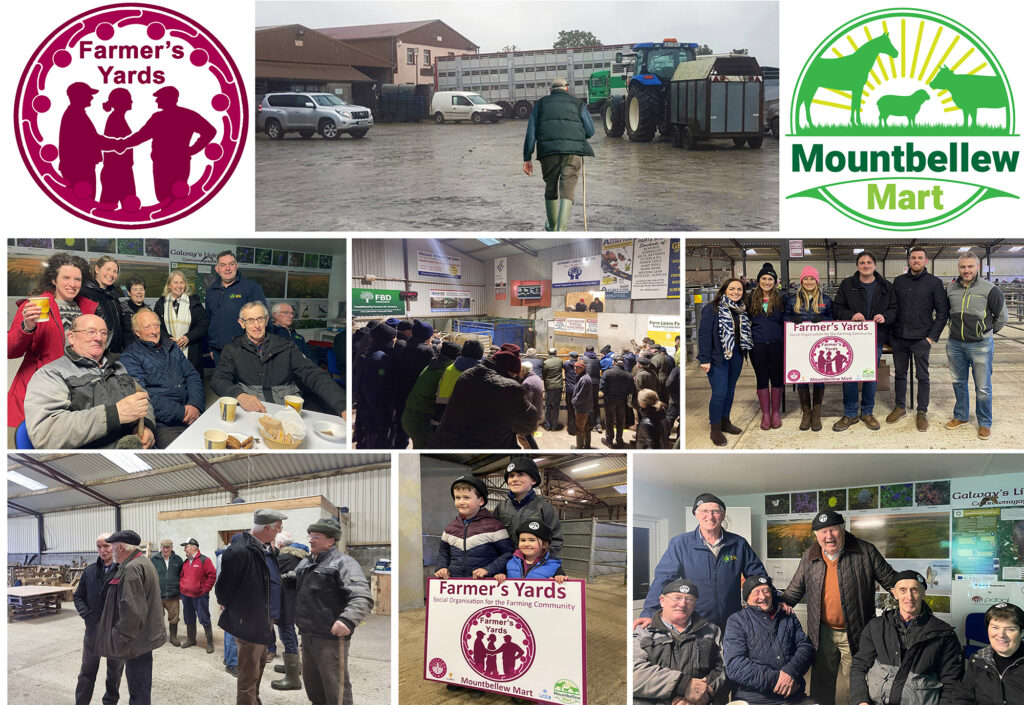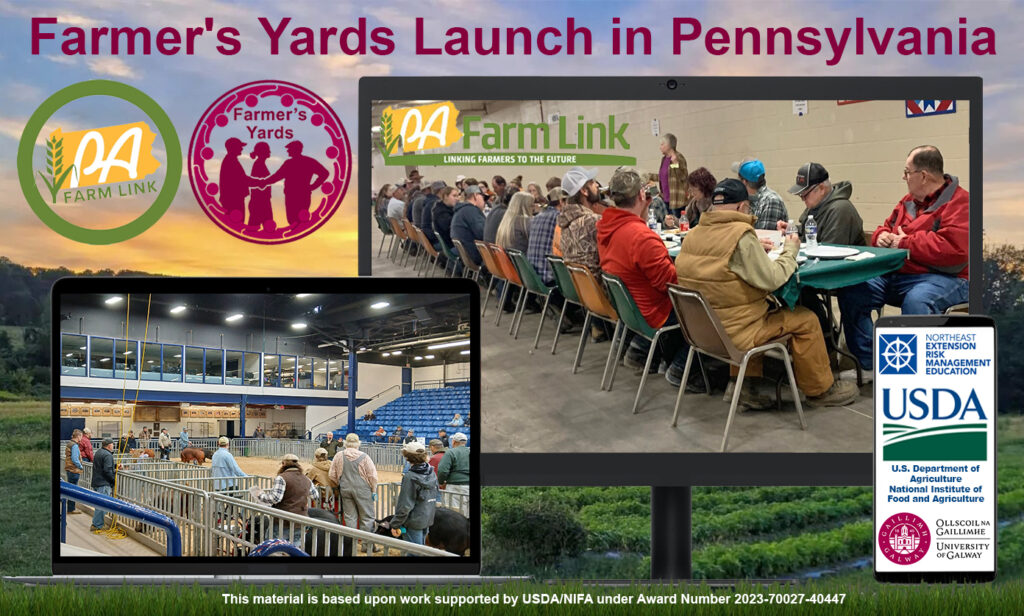Farmer’s Yards: Promoting Later-Life Wellbeing and Farm Transition Through Transatlantic Collaboration
By Dr. Shane Conway
Rural Studies Centre, National University of Galway, Ireland & IFTN Vice Chairperson
April 22, 2025
A transatlantic partnership has seen a groundbreaking social initiative for the older generation of the farming community, Farmer’s Yards, expand from Ireland to the United States. Initiated and developed by Dr. Shane Conway at the University of Galway’s Rural Studies Centre in Ireland and adopted by Darlene Livingston of Pennsylvania Farm Link, Farmer’s Yards is helping older farmers across both countries navigate the emotional and practical complexities of farm succession by providing safe, trusted spaces for peer-to-peer connection, knowledge exchange and purpose in later life.
This initiative’s international adaptation has been facilitated through the collaborative efforts of Dr. Conway and Darlene, both active members of the International Farm Transition Network (IFTN), which brings together service providers such as accountants, legal advisors, ag lenders, farm managers, and educators to support farm businesses in successfully transitioning to the next generation. Their shared commitment to bridging the human and operational sides of farm transition has made Farmer’s Yards a timely and globally relevant model.
Why Farmer’s Yards?
As agriculture grapples with a rapidly aging population, with farmers aged 65 and over now the fastest-growing demographic globally, many nations face challenges around succession, generational renewal and the social integration of older farmers. Despite owning the land and often retaining significant decision-making power, older farmers are frequently absent from policy discussions and support systems around farm transfer.
Farmer’s Yards addresses this gap by focusing explicitly on the older generation’s role in succession, not just as decision-makers, but as individuals who deserve dignity, inclusion, and purpose as they contemplate ‘stepping back’ from full-time agricultural work.
Too often, older farmers are faced with abrupt or impersonal retirement options. Ireland’s previous Early Retirement Scheme (ERS3), for example, required older farmers to ‘cease all agricultural activity forever’ upon retirement, failing to acknowledge the sense of identity, community, and lifelong purpose tied to farming. For many, the idea of retirement remains emotionally fraught, not least because farming is not ‘just a job’, it is a way of life.
A Social Response to a Generational Challenge
Initially piloted in Mountbellew Livestock Mart (Auction House) in County Galway, Ireland in 2023, Farmer’s Yards reimagined the Mart not only as an economic hub, but also as a space of community engagement and social interaction. Designed to create peer-support gatherings for older farmers, the initiative offers a non-judgmental forum for discussing succession, sharing stories, receiving advice and staying active in the farming community. Importantly, it also includes educational elements, workshops on legal and financial planning, expert talks on farm safety and wellbeing as well as tailored advice on farm transition planning, for example.
The successful pilot was funded through the University of Galway Innovation Office’s Illuminate Programme, with lessons learned from this social initiative successfully published in the Journal of Agromedicine in July 2024. Its cross-cultural relevance became clear early on, with Pennsylvania Farm Link securing USDA-backed funding via the Northeast Extension Risk Management Education Center to adapt the programme for U.S. farmers. In January 2025, the first Farmer’s Yards event in the U.S. was held during the 109th Pennsylvania Farm Show, drawing a diverse group of older farmers eager to reflect on the future of their farms and foster meaningful connection. Additional gatherings are planned in rural communities across the state.
Farm Succession: A Personal and Social Transition
Intergenerational farm transition is not merely a financial transaction or legal handover, it is a deeply personal journey involving identity, control, trust and the emotional reality of legacy. Research by Dr Conway at the University of Galway in Ireland highlights how many older farmers fear the loss of relevance, routine, and recognition that may come with ‘retirement’ from farming. These concerns often lead to delays in succession planning or resistance to formal transfer processes.
Farmer’s Yards recognizes this resistance and offers a model that embraces the older farmer’s perspective. Rather than pushing formal transfer, it fosters open dialogue, mentorship and relationship-building. By creating supportive social settings, it allows older farmers to gradually explore transition, share experiences with peers, and feel valued, not sidelined, in the process.
Darlene Livingston, Executive Director of Pennsylvania Farm Link, notes: ‘“Farmer’s Yards in Pennsylvania is designed for our farming community’s particular interests, requirements and values, in accordance with the model developed at University of Galway. The important role that the initiative plays in ensuring active social participation and inclusion for farmers as they age was evident with so many farmers in their 70s and 80s taking part. Such engagement will help prevent them from being isolated and feeling excluded from society in later life.”
Farmer’s Yards is therefore not just a support group, it is a vital social outlet that validates their lifelong contributions and prepares them emotionally for what comes next.
Policy Alignment and Future Expansion
The Farmer’s Yards initiative’s alignment with international policy priorities is clear. It complements the European Union’s Common Agricultural Policy (CAP) goals around generational renewal and rural vitality, while also addressing USDA and WHO frameworks on healthy aging and social inclusion. By helping to reduce the stigma around ‘stepping back’, improving access to mental health and planning resources, and offering continued purpose to older farmers, Farmer’s Yards bridges both the personal and policy gaps in succession.
Additionally, the model can be scaled up with minimal overheads. Sessions can be held in familiar community venues for the farming community such as livestock auctions, local halls, or extension centers, for example. It also integrates seamlessly with the work of IFTN members, who can offer succession planning services alongside the emotional and social support provided by the initiative.
Conclusion
Farmer’s Yards offers a fresh, holistic approach to farm transition, one that centers the voices, values and wellbeing of older farmers. Its success lies not in formalizing transition plans, but in creating the conditions for those plans to emerge naturally from trust, connection, and inclusion.
As Dr. Conway reflects: ‘For a long time, the focus in generational renewal has been on the young farmer. While this is important, we must not overlook the older generation, the ones who hold the keys to the farm. Farmer’s Yards gives them a place to be heard, to be valued, and to shape the future of their land in their own time’.
Through the leadership of IFTN members like Dr. Conway and Darlene Livingston, this grassroots initiative is proving that farm succession is not only about passing on land, it is also about passing on a legacy and one’s lifelong knowledge and wisdom, as well as protecting the older generation’s sense of belonging and purpose in later life.
Author
Dr Shane Conway, Project Manager and Adjunct Lecturer, Rural Studies Centre, University of Galway & IFTN Vice Chairperson
LinkedIn Profile: https://www.linkedin.com/in/drshaneconway/
X(Twitter) Account: https://x.com/DrShaneConway
Recent publication: Conway, S. F., Farrell, M., McDonagh, J. and Nolan, N. (2024). Creating an Age-Friendly Environment in Farming – The Farmer’s Yards Approach. Journal of Agromedicine, 1–8. Link: https://doi.org/10.1080/1059924X.2024.2383730



